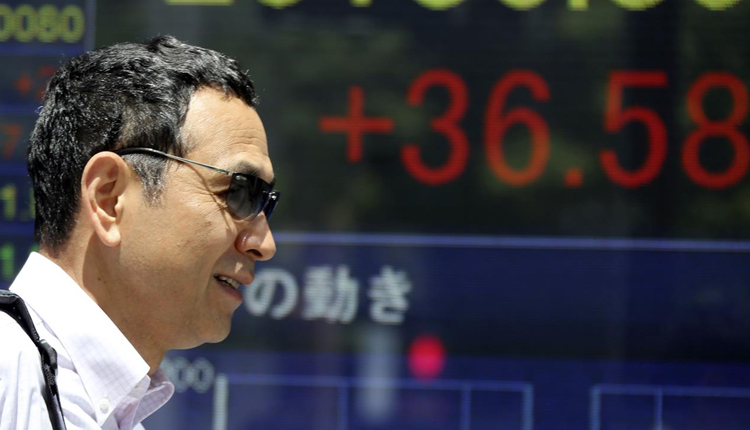Asian markets were mostly higher on Wednesday afternoon after a cautious morning as investors wait for an important meeting between U.S. President Donald Trump and Chinese leader Xi Jinping later this week.
The mainland Chinese markets were in positive territory by the end of the morning session. The Shanghai composite was higher by 0.86 percent and the Shenzhen composite recovered from earlier losses to advance by 0.953 percent.
Meanwhile, Hong Kong’s Hang Seng index gained 0.91 percent.
US-China trade hopes
Overnight on Wall Street, major stock indexes rose after National Economic Council Director Larry Kudlow said the White House was having “a lot of communication with the Chinese government at all levels” ahead of the critical meeting between Trump and Xi at the G-20 summit in Argentina.
The two leaders are expected to talk trade after Washington and Beijing applied additional tariffs on billions of dollars’ worth of each other’s imports. Those moves prompted concerns about slowing global economic growth. Trump and Xi are set to have dinner on Saturday.
Kudlow later told reporters Trump thinks there is a “good possibility” the two countries can reach an agreement. His comments came after the president told The Wall Street Journal that it was “highly unlikely” that the U.S. would delay from increasing tariffs on $200 billion in Chinese goods to 25 percent.
“Markets feel poised for some significant moves and it does look like this G20 meeting is shaping up to be one of the most important in recent history in terms of market focus,” said Rakuten Securities Australia in a note. “Of course it’s not that actual summit that investors are (focusing) on but the meeting between the President Trump and President Xi and whether we get any positive result for global growth.”
“It’s unlikely that we will get a concrete agreement between the two sides this week but the market will take any promise of further cooperation as a positive and it will react accordingly,” they said.
The sentiment was echoed by a J.P. Morgan executive.
“The two sides are both coming to the table to work out some kind of resolution, even though resolution may be short term but a temporary truce should be positive for markets,” Jing Ulrich, managing director and vice chairman of Asia Pacific for J.P. Morgan Chase, told CNBC’s “Street Signs” on Wednesday.
Ulrich, however, added the caveat that “we cannot hold out hope that this one dinner will actually end all trade escalation or trade tension forever,” even though she said she saw “some kind of light at the end of the tunnel.”
Rest of Asia mostly sees gains
Japan’s Nikkei 225 was around 1 percent higher in afternoon trade while the Topix index rose 0.48 percent, with shares of Fast Retailing advancing more than 2.8 percent. South Korea’s Kospi gained 0.12 percent.
In Australia, the ASX 200 was fractionally lower.
Shares of Australia’s so-called Big Four banks traded lower. Australia and New Zealand Banking Group was down 0.19 percent, Commonwealth Bank of Australia was lower by 0.13 percent, Westpac was lower by 0.11 percent and National Australia Bank declined 0.14 percent.
Fed in Trump’s crosshairs
Meanwhile, the U.S. president said he’s “not even a little bit happy” with his appointment of Jerome Powell as chair of the Federal Reserve.
During an interview with the Washington Post released on Tuesday, Trump said he thinks the U.S. central bank is “way off-base with what they’re doing.”
The Post said he blamed the Fed for the recent stock market sell-off and General Motors’ plans to close plants and cut more than 14,000 jobs. The president argued that the Fed is hurting the U.S. economy by raising interest rates.
Currencies
The U.S. dollar index, which tracks the greenback against a basket of its peers, was at 97.379 after touching a high of 97.422 earlier.
“So the market seems to be jumping at shadows at the moment and against this backdrop of uncertainty the USD remains the prefer(ed) option for weathering the storm,” Rodrigo Catril, a senior foreign exchange strategist at National Australia Bank, said in a morning note.
The Japanese yen, widely viewed as a safe-haven currency, was at 113.83 after weakening from levels around 113.4 in the previous session. The Australian dollar traded at $0.7235 after a choppy session yesterday which saw it touch lows close to the $0.72 handle.
Source: CNBC
